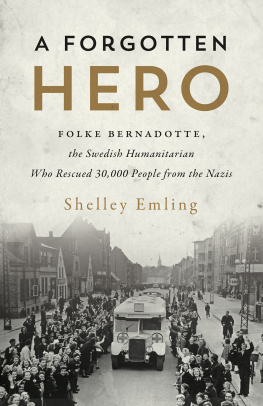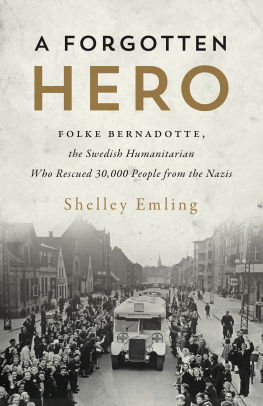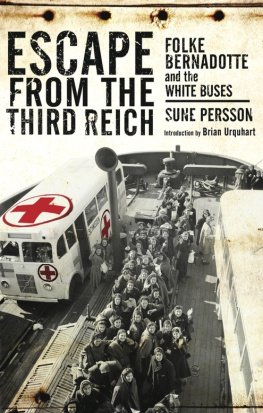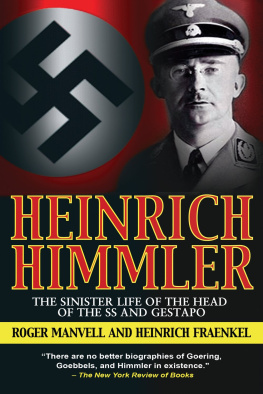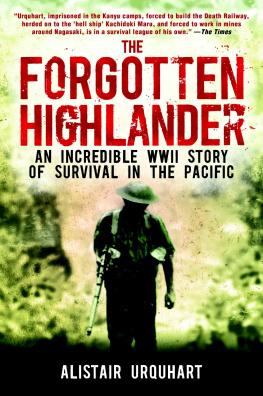We werent brought into this world to be happy, but to make others happy.
Manya Moszkowiczs life began to unravel on the first Friday in September of 1939.
Up until then, the chief discomforts the precocious 13-year-old faced in her small town in central Poland were physical scrapes from running barefoot through fields of prickly vegetation, or a stomach upset by eating too many green apples. For her, there was no harbinger of the sinister events to come, the anti-Semitism already endemic in Central Europe at the time, even when she and her family moved to a larger city nearer the German border in 1938. She had noticed a few signs popped up around town urging Poles to boycott the hundreds of Jewish businesses scattered throughout Sosnowiecs streets. But Manya, a spindly girl with a round face, pretty dark eyes, and frizzy black hair, was rarely personally troubled by such intolerance.
On that late-summer morning in September, however, word spread that the Germans had invaded her country. By the end of the weekend, the Nazi armed forces, the Wehrmacht, had rolled into town with their machine guns and shredded the only Polish soldier left in the vicinity to defend it. Overnight, Manyas world and that of her parents and two brothers was turned upside down. The wolf was on her doorstep. Anti-Semitism now wore a uniform and carried a weapon. Surely, she remembers thinking to herself, the world will not allow this miscarriage of justice to continue. Surely, the world powers will step in and stop the madman behind it all. Surely, someone will do something.
They did not.
In Sosnowiec, the anti-Semitic slurs and slights turned into outright terrorization. Jewish shop owners were jailed and their businesses handed over to German or Polish citizens. Authorities confiscated the valuables of Jewish families right down to their bicycles and clocks and distributed ration cards that allotted them only a miserly few staples. Jews were ordered to identify themselves by wearing white arm bands, which gave the Germans license to stop them in the streets and search for contraband. The local synagogue was burned to the ground while its congregation was forced to watch. German soldiers and civilians filmed themselves gleefully tormenting Jewish men in the streets, beating them or making them perform for the rolling cameras like dancing monkeys.
From that day on, there was not a peaceful moment. Any insignificant thing meant life or death, Manya remembered some 70 years later. Our entire life depended on the attitude of the SS or the Gestapo, or their degree of drunkenness.
One evening in particular stands out in her memory. A German had moved into an apartment in their building and demanded flower boxes for his balcony like those that adorned Manyas home. He barged through their front door, drunk and brandishing a pistol, along with the buildings superintendent. Manya, her brothers, and their mother cowered in separate corners of the room while the belligerent man chased their father around the kitchen table shouting obscenities and waving the gun. Only when her father promised to deliver the flower boxes the next morning did the man agree to leave.
Surviving each day was a minor miracle. Neighbors vanished during the night, never to be seen or heard from again. A mandatory curfew led to indiscriminate arrests, often with the same outcome. The uncertainty was almost unbearable. Each evening, they would huddle in their parlor, waiting and praying, until each member of the family returned from the days errands. Only after everyone was safe under one roof for the night would they heave a sigh of relief as an uneasy calm settled over the household. Day after day, it continued.
By the end of 1940, Jews from the surrounding towns and villages had been corralled in Sosnowiec, forced into ghettos where they could be controlled more easily. Thousands were deported daily, but thousands of others obtained jobs in local manufacturing shops dedicated to the war effort. In March 1941, Manya found such work, which afforded her a precious Sonderkarte, or proof of employment that had the power to prevent deportation. She worked as a seamstress sewing pockets on uniforms for Nazi soldiers and the mustard-brown shirts sported by the Hitler Youth. She labored doggedly and tried not to attract any attention, for fear shed be sent away. And for many months, the routine continued without interruption.
But one evening two years later as her shift was ending, her luck ran out. SS officers surrounded the building and the entire staff was rounded up for deportation. She was immediately hustled off to a deportation center. Her parents were allowed to bring a single suitcase to her at the facility, but were forbidden from speaking to her. Manya stared into the faces of her parents as her younger brother clawed at the fence between them. They seemed to age 20 years in an instant.
I assume each one of us had the same thought. Will we ever see each other again? she recalled decades later. As it turned out, that was the last time I saw my parents and my two brothers.
Days later, the rest of her family was sent off to the notorious Auschwitz Konzentrationslager, where they were immediately segregated. Manyas father and older brother were placed in one line while her mother and younger brother were placed in the other. Her father refused to be separated from his wife, so he and her brother crossed over to join her. It was an easy line to cut. It was destined for the gas chamber.
Manya was 17, and alone for the first time in her life.
She was sent to a new privately run camp in Gleiwitz that produced soot, or carbon black, for the rubber tires needed for the Nazi death machines rolling across Europe. The facilities were new, and clean, and she was assigned an office job. Others, not so lucky, toiled in dungeon-like chambers full of furnaces, where they breathed in noxious fumes as jet-black dust coated their clothes and any exposed parts of their perspiring bodies and faces.
Before long, the SS took over the camp, and it became an Auschwitz outpost. Her jolly (her word) German boss was replaced by stern SS officers and unforgiving female German overseers known as Kapos. The girls heads were shaved, they were stripped of their clothes, and paraded into a room full of officers where every inch of their bodies was prodded and manhandled. Every orifice probed. For a modest young girl it was the ultimate humiliation.
I cannot forget that feeling, she recalled later. I dont think I got undressed to take a shower in front of my mother. And here, naked, we had to go in front of the Nazis to have our arms tattooed. And of course, from that day on, we were not called by our names but by our numbers. But believe me, they took away much more than our names.
Henceforth, Manya was known as 79357.
One evening in January 1945, as the Russian army ground down Adolf Hitlers army in the east, there was a commotion in the camp. They were being evacuated, Manya learned from her fellow prisoners. Those left behind, the whispers insinuated, were to be exterminated put through the Schornstein [chimneys] in the vernacular of the SS officers rather than left alive as evidence of the Nazi atrocities. Her close friend, Lola, lay nearly unconscious from fever in the infirmary, and Manya was faced with a choice: leave her friend to the fates or bring her on what was sure to be a perilous journey. She chose the latter.

